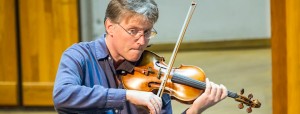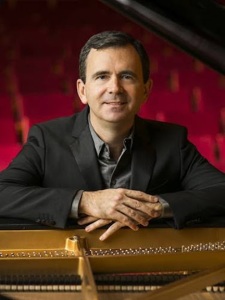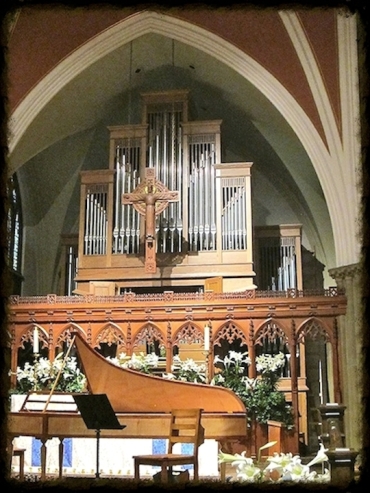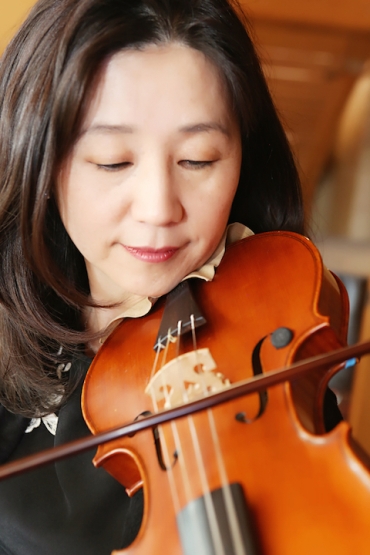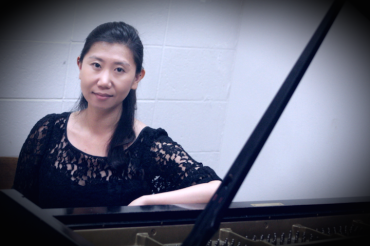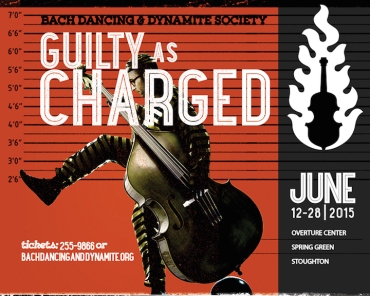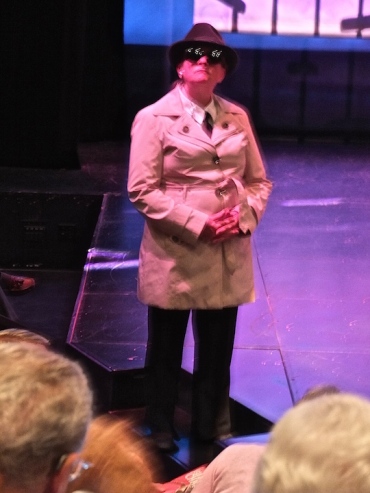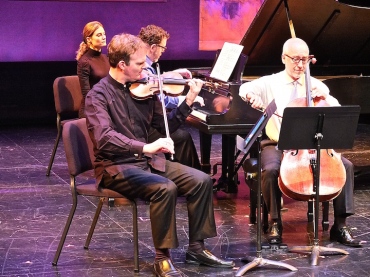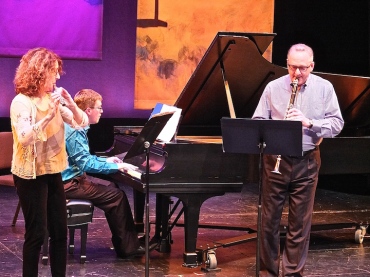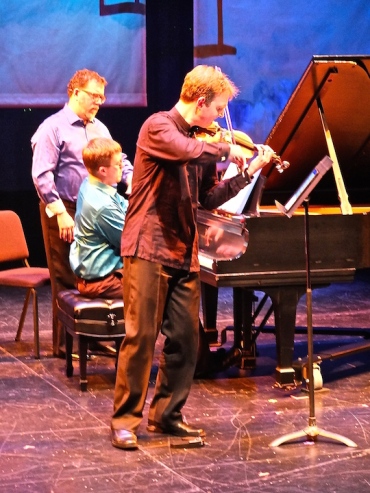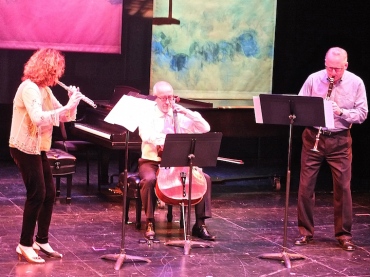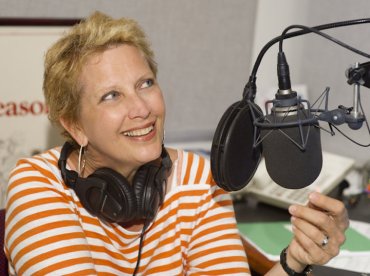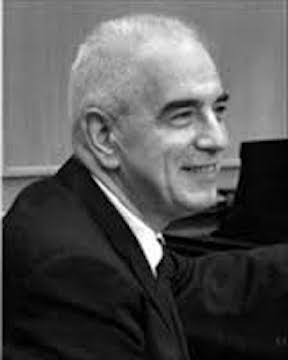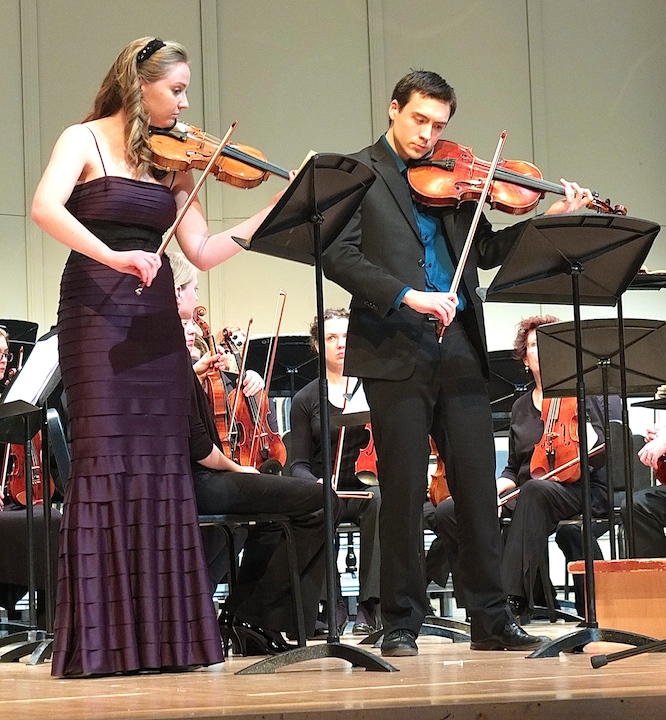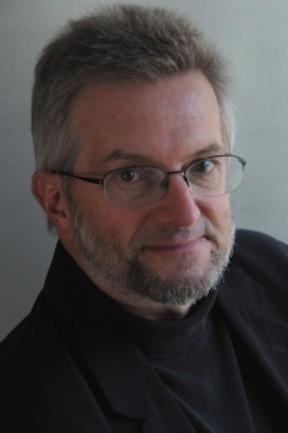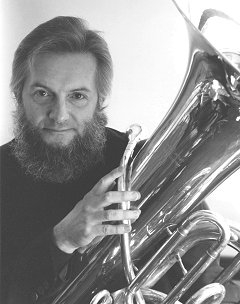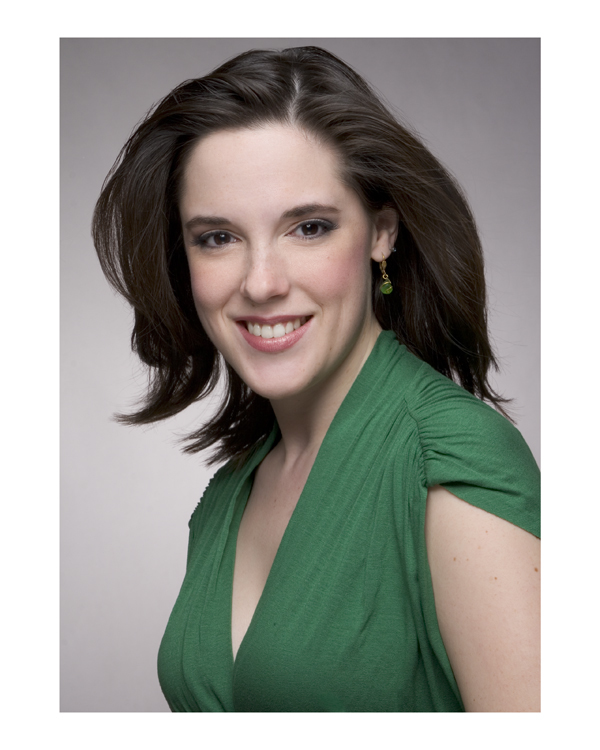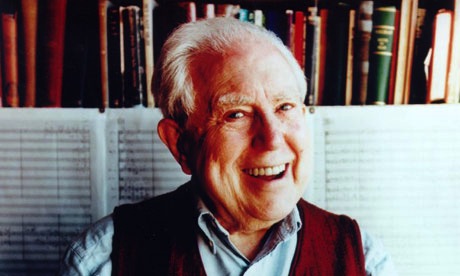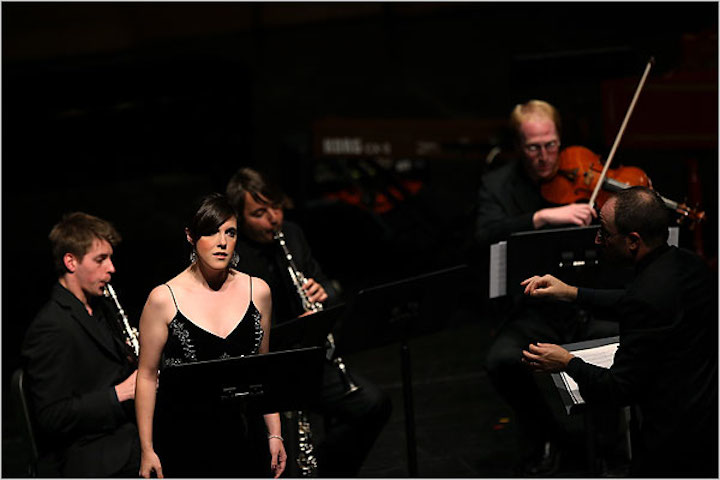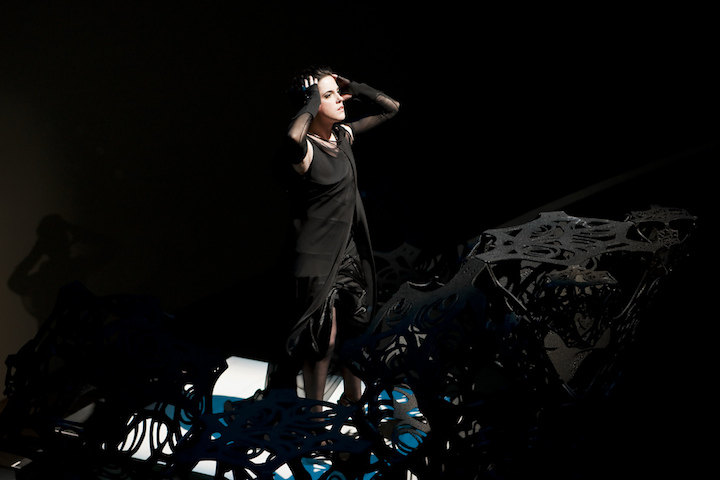The Well-Tempered Ear
Due to popular demand, Wisconsin Youth Symphony Orchestras (WYSO) opens its FREE virtual master classes to the public. Today features the violin and Monday features the bass
Leave a Comment
PLEASE HELP THE EAR. IF YOU LIKE A CERTAIN BLOG POST, SPREAD THE WORD. FORWARD A LINK TO IT OR, SHARE IT or TAG IT (not just “Like” it) ON FACEBOOK. Performers can use the extra exposure to draw potential audience members to an event. And you might even attract new readers and subscribers to the blog.
By Jacob Stockinger
The Wisconsin Youth Symphony Orchestras (WYSO) welcomes back two distinguished and successful alumni this weekend to teach the fifth and sixth master classes in an ongoing series that has already wowed observers. (WYSO alumni are noted below with an asterisk.)
Each virtual event is free and open to the general public with registration required in advance.
“The series has been so fabulous that, due to popular demand, we’ve opened up the events to anyone who wants to attend,” says Susan Gardels, marketing and communications director for WYSO.
TODAY – Sunday, Jan. 10 — from 5:30-7:30 p.m. CST Derek Powell, a violinist with the National Symphony Orchestra in Washington, D.C., will coach four WYSO violin members in a two-hour master class.
This will be followed the next evening with a master class coached by Scott Pingel, Principal Bass with the San Francisco Symphony Orchestra (Monday, Jan. 11, 6:30-8:30 p.m. CST).
A master class presents a one-on-one opportunity for a student musician to learn from a guest artist with an audience invited to observe the process.
In previous master classes in this series, the audience has learned instrument performance techniques and musical interpretation tips from a wide variety of guest artists who professionally play music around the world.
With the master classes presented in an intimate Zoom setting, the audience learns along with the student— and it is amazing to see the sudden growth in a student’s musical prowess as a master class proceeds.
Derek Powell’s bio includes his experience with the New World Symphony where Powell (below) performed as concertmaster with famed conductor Michael Tilson Thomas and as a violinist with the Army Strings, as well as his current experience with the National Symphony Orchestra.
Scott Pingel (below) was a trumpet player in his WYSO days with a side love for electric bass. Pingel switched to concert bass as an undergraduate at UW-Eau Claire, continued studies at the Manhattan School of Music, and played with the New World Symphony and the Charleston Symphony before joining the San Francisco Symphony as Principal Bass in 2004. He recently created buzz by playing with Metallica in a packed house with the San Francisco Orchestra.
For more information, go to: WYSO Amazing Masterclass Series:
Here are details and links to register:
*Derek Powell, Violin Master Class
TODAY, Sunday, Jan. 10, 5:30-7:30 p.m. CST
Free and open to the public
Click here to register in advance
_______________________________
*Scott Pingel, Bass Master Class
Monday, Jan. 11, 6:30-8:30 p.m. CST
Free and open to the public
Click here to register in advance
Here are is a schedule of future WYSO alumni master classes:
Katherine Steele (below), oboe
Sunday, Jan. 17, 6-8 p.m. CST
(Principal Oboe, Milwaukee Symphony Orchestra) https://wysomusic.org/katherine-steel-masterclass/
James Shields (below), clarinet
Sunday, Jan. 24, 7-9 p.m. CST
(Principal Clarinet, Oregon Symphony Orchestra)
Read more about James Shields
*Nancy Goeres (below), bassoon
Sunday, Feb. 7, 6-8 p.m. CST
(Principal Bassoon, Pittsburgh Symphony Orchestra)
Danbi Um (below), violin
Sunday, Feb. 21, Time TBD
(Soloist, member Chamber Music Society of Lincoln Center)
Megumi Kanda (below), trombone
Sunday, Feb. 28, 5:30-7:30 p.m. CST (Principal Trombone, Milwaukee Symphony Orchestra)
David Perry (below), violin
Sunday, March 7, 6-8 p.m. CST
(First Violin, UW-Madison Pro Arte Quartet and UW-Madison Music Professor)
Naha Greenholtz (below), violin
Sunday, March 28, 6-8 p.m. CST
(Concertmaster, Madison Symphony Orchestra and Quad Cities Symphony Orchestra)
*Sharan Leventhal (below), violin
Sunday, April 11, 6-8 p.m. CST
(Boston Conservatory)
For more information, go to https://wysomusic.org or call (608) 733-6283.
Tags: #African-Americanmusician, #ArmyStrings, #AugustaReadThomas, #BassPlayer, #BlackAmericans, #BlogPost, #BlogPosting, #BostonConservatory, #ChamberMusic, #ChamberMusicSocietyofLIncolnCenter, #CharlestonSymphony, #ClarinetMusic, #CommunicationsDirector, #ConcertBass, #DanbiUm, #DavidPerry, #DerekPowell, #ElectricBass, #FacebookPost, #FacebookPosting, #FacultyMember, #GeneralPublic, #GuestArtist, #HomeWebsite, #JacobStockinger, #JamesShields, #KatherineSteele, #LincolnCenter, #MadisonSymphonyOrchestra, #ManhattanSchoolofMusic, #MarketingDirector, #MeadWitterSchoolofMusic, #MegumiKanda, #MichaelTilsonThomas, #MilwaukeeSymphonyOrchestra, #MilwaukeeWisconsin, #MusicCoach, #MusicEducation, #Musicfaculty, #MusicProfessor, #NahaGreenholtz, #NancyGoeres, #NationalSymphony, #NationalSymphonyOrchestra, #NewWorldSymphony, #OboeMusic, #OnlineConcert, #OrchestralMusic, #OregonSymphonyOrchestra, #PittsburghSymphony, #PopularDemand, #PrincipalBass, #PrincipalBassoon, #PrincipalClarinet, #PrincipalOboe, #PrincipalTrombone, #ProArteQuartet, #QuadCitiesSymphonyOrchestra, #RegistrationForm, #RockandRoll, #SanFranciscoSymphony, #ScottPingel, #SharanLeventhal, #TheEar, #TheUW, #UniversityofWisconsin-Madison, #USArmy, #UW-EauClaire, #VirtualConcert, #WashingtonD.C., #WisconsinYouthSymphonyOrchestras, #YouTubevideo, #ZoomMeeting, advance, African American, alumni, alumnus, anyone, Army, Army Strings, Arts, asterisk, audience, bass, Bassoon, bio, black, blog, Boston Conservatory, buzz, call, Chamber music, Chamber Music Society of Lincoln Center, Charleston, Charleston Symphony, clarinet, Classical music, coach, communications, Concert, concert bass, concertmaster, conductor, current, D.C., Danbi Um, David Perry, demand, Derek Powell, details, director, distinguished, electric bass, evening, event, experience, Facebook, Facebook post, Facebook posting, faculty, forward, free, general public, go, guest artist, home website, information, instrument, invite, Jacob Stockinger, James Shields, Katherine Steele, learn, like, LIncoln Center, link, Love, Madison, Madison Symphony Orchestra, Manhattan School of Music, marketing, master class, masterclass, Mead Witter School of Music, Megumi Kanda, member, Mettalica, Michael Tilson Thomas, Milwaukee, Milwaukee Symphony Orchestra, Monday, MSO, MTT, Music, Music education, music faculty, Musician, Naha Greenholtz, Nancy Goeres, National Symphony, National Symphony Orchestra, New World Symphony, noted, Oboe, oboist, observe, observer, online, open, opportunity, Orchestra, orchestral music, Oregon, Oregon Symphony Orchestra, PAQ, performance, Pittsburgh Symphony Orchestra, play, popular, popular demand, post, posting, Principal Clarinet, Principal Oboe, Principal Trombone, prinicipal, Pro Arte Quartet, process, professor, prowess, public, Quad Cities, Quad Cities Symphony, registration, require, rock and roll, San Francisco Symphony, Scott Pingel, series, Sharan Leventhal, share, side, society, solo, soloist, Student, studies, successful, Sunday, switch, symphony, tag, technique, techniques, The Ear, Trombone, trombonist, U.S. Army, undergraduate, United States, University of Wisconsin-Madison School of Music, University of Wisconsin–Madison, UW, UW-Eau Claire, UW-Madison, Violin, violin music, violinist, virtual, Washington, Washington D.C., Website, weekend, welcome, Wisconsin, Wisconsin Youth Symhony Orchestras, wowed, WYSO, Zoom
Classical music: Pianist James Giles will replace Ya-Fei Chuang for TONIGHT’s recital at Farley’s House of Pianos
Leave a Comment
IF YOU LIKE A CERTAIN BLOG POST, PLEASE SPREAD THE WORD. FORWARD A LINK TO IT OR, SHARE or TAG IT (not just “Like” it) ON FACEBOOK. Performers can use the extra exposure to draw potential audience members to an event.
By Jacob Stockinger
The Ear has received the followed announcement from Farley’s House of Pianos about its solo recital tonight.
“We are sad to announce that pianist Ya-Fei Chuang has sustained an injury that will prevent her from performing for us TONIGHT and teaching a master class on Sunday. It is our intent to reschedule her as soon as her health and schedule permit.
“In the meantime, we are very fortunate that James Giles (below), of Northwestern University, is able to step in and perform for us, and we are excited about the program and repertoire he has shaped for us.
“We apologize for this last-minute change, but are excited to introduce James Giles to our Salon Piano Series audience, and look forward to seeing you TONIGHT at 7:30 p.m. at 6522 Seybold Road, on Madison’s far west side near West Towne Mall.”
His recital at Salon Piano Series will include works of Johannes Brahms, Franz Schubert, Isaac Albeniz, Ignaz Jan Paderewski, Leopold Godowsky and others.
An artist’s reception will follow the concert.
Tickets are $50 in at the door ($10 for tickets) and $45 in advance at:
https://www.brownpapertickets.com/event/3499200
For more information about the master class, including participants and repertoire, call Farley’s at (608) 271-2626 or go to:
Giles has been praised as “a technically polished, elegant pianist” (Sibelius Academy, Helsinki), “with a riveting intelligence given to everything he play[s],” (Wigmore Hall, London), a “distinctive interpretive persona [and] beautiful pianism … direct and unmannered” (Alice Tully Hall, New York). His Paris recital at the Salle Cortot in 2004 was hailed as “a true revelation, due equally to the pianist’s artistry as to his choice of program.” (You can hear Giles playing the Humoresque by Robert Schumann in the YouTube video at the bottom.)
Giles regularly performs in important musical centers in America, Europe, and Asia, in solo and chamber recitals and as concerto soloist. A native of North Carolina, he studied at the Manhattan School, the Juilliard School, Eastman School of Music, and at Oberlin College. He was awarded a Fulbright Grant to study in Italy with the legendary Russian pianist Lazar Berman.
Coordinator of the Piano Program and Director of Music Performance Graduate Studies at Northwestern University, Giles is director of the Amalfi Coast Music Festival during the summers, and was director of the 2017 American Liszt Society Festival.
Tags: #AlfredCortot, #AliceTullyHall, #AmalfiCoast, #BlogPost, #BlogPosting, #ChamberMusic, #EastmanSchoolofMusic, #FacebookPost, #FacebookPosting, #Farley'sHouseofPianos, #FranzLiszt, #FranzSchubert, #FulbrightGrant, #HelsinkiFinland, #IgnazJanPaderewski, #IsaacAlbeniz, #JamesGiles, #JohannesBrahms, #JuilliardSchool, #LazarBerman, #LeopoldGodowsky, #LondonEngland, #ManhattanSchoolofMusic, #NewYorkCity, #NorthCarolina, #NorthwesternUniversity, #OberlinCollege, #ParisFrance, #PIanoRecital, #RobertSchumann, #SalleCortot, #SalonPIanoSeries, #WestTowneMall, #WigmoreHall, #Ya-FeiChuang, Alfred Cortot, Alice Tully Hall, Amalfi Coast, America, American, artist, Arts, Asia, audience, blog, Chamber music, change, Classical music, composer, Concert, concerto, director, Eastman School of Music, Europe, Facebook, Farley's House of Pianos, festival, forward, Franz Schubert, Fulbright Grant, Health, Helsinki, Humoresque, Ignaz Jan Paderewski, injury, Isaac Albéniz, Italy, Jacob Stockinger, James Giles, Johannes Brahms, Juilliard School, Lazar Berman, Leopold Godowsky, like, link, Liszt, London, Madison, Manhattan School of Music, master class, masterclass, member, Music, Music festival, New York City, North Carolina, Northwestern University, Oberlin College, Paris, performer, Pianist, Piano, reception, recital, repetoire, Revelation, Robert Schumann, Russian, sad, Salle Cortot, Salon Piano Series, schedule, share, solo, Student, summer, tag, ticket, tonight, United States, West Towne Mall, Wigmore Hall, Wisconsin, Ya-Fei Chuang
Classical music: Grace Presents offers a FREE violin and piano concert of music by Mozart, Schumann and Fritz Kreisler this Saturday from noon to 1 p.m.
1 Comment
By Jacob Stockinger
A FREE concert this weekend by Grace Presents features violin and piano music played by local musicians.
The concert takes place from noon to 1 p.m. this Saturday at Grace Episcopal Church, where West Washington Avenue runs into the Capitol Square.
The performers are violinist Kangwon Kim and pianist Seungwha Baek.
The program is: Sonata for Piano and Violin in A major, K. 526, by Wolfgang Amadeus Mozart (1756-1791); Sonata No. 1 for Violin and Piano in A minor, Op. 105, by Robert Schumann (1810-1856); and “Liebesleid” (Love’s Sorrow, performed by Anne Akiko Meyers in a YouTube video at the bottom) and “Liebesfreud” (Love’s Joy) by Fritz Kreisler (1875–1962).
Kangwon Lee Kim (below) is a versatile violinist with repertoire ranging from baroque to 21st century using both Baroque and modern violins. She performs with the Madison Bach Musicians.
Kangwon Kim earned her Doctor of Musical Arts degree from the University of Wisconsin-Madison and also holds degrees from the Oberlin College Conservatory of Music, the Manhattan School of Music and Temple University.
A native of Seoul, Korea, pianist Seungwha Baek (below) is currently working towards the Doctor of Musical Arts degree in collaborative piano at the University of Wisconsin-Madison under Professor Martha Fischer.
For more information about upcoming concerts in a variety of genres and style, plus a chance to let Grace Presents know what you think of a specific concert or performers, go to:
Tags: Anne Akiko Meyers, Arts, Capitol Square, Chamber music, Classical era, Classical music, Fritz Kreisler, Grace Episcopal Church, Grace Presents, Jacob Stockinger, Joy, Korea, Love, Madison, Manhattan School of Music, Mozart, Music, New Music, Oberlin College Conservatory, Piano, Robert Schumann, Seoul, Sonata, sorrow, Temple University, United States, University of Wisconsin-Madison School of Music, University of Wisconsin–Madison, Violin, Wisconsin, Wolfgang Amadeus Mozart, YouTube
Classical music: Metropolitan Opera radio host Margaret Juntwait is dead at 58.
2 Comments
ALERT: This month’s “Sunday Afternoon Live From the Chazen” concert will take place tomorrow at 12:30 p.m. in Brittingham Gallery III.
The concert features local violinist Kangwon Kim, violist Micah Behr and cellist Mark Bridges. The program includes a suite for solo viola by Quincy Porter and an arrangement of Johann Sebastian Bach’s famous “Goldberg” Variations for string trio done by Russian violist Dmitry Sitkovetsky.
Admission is FREE. Since Wisconsin Public Radio ended live broadcasts of the concert after 36 years, you can stream it live starting at 12:30. Just go to the Chazen Museum of Art’s website where you will find the necessary link:
By Jacob Stockinger
Her expressive voice became as identifiable with the opera -– with the Metropolitan Opera -– as have some of the world’s great singers.
Her name is Margaret Juntwait (below in a photo by Jonathan Tichler) and she hosted the live radio broadcast from the Met that started in December and ran through May. Every Saturday, she reached more than one million fans worldwide with her commentaries and her outstanding interviews with singers and conductors.
This past Wednesday, Margaret Juntwait died at 58 of complications from ovarian cancer, which she had battled with for a decade.
Because today is Saturday, it seems like the perfect day for The Ear to post about her passing.
Here are three stories about Margaret Juntwait and her career plus a very short YouTube video about Puccini’s “La Boheme” that shows her quick wit.
From the Deceptive Cadence blog on National Public Radio (NPR):
From the Metropolitan Opera:
http://metopera.org/metopera/news/features/news-flash/remembering-margaret-juntwait
From the famed radio station in New York City, WQXR and WNYC:
Feel free to leave your thoughts and feelings in the COMMENTS section of the blog.
The Ear wants to hear – and so do others.
Tags: "Goldberg" Variations, Arts, Cello, choral music, Classical music, conductor, Dmitry Sitkovetsky, Johann Sebastian Bach, La bohème, Madison, Manhattan School of Music, Margaret Juntwait, Metropolitan Opera, Music, National Public Radio, New York City, NPR, opera, Ovarian cancer, Peter Gelb, Puccini, singer, Sirius XM Radio, Soundcheck (radio program), string trio, United States, University of Wisconsin-Madison School of Music, University of Wisconsin–Madison, Viola, vocal music, WNYC, WQXR, WQXR-FM
Classical music: Is this the minority report of a dissenter? The Ear offers some thoughts and after-thoughts from recent concerts by the Madison Symphony Orchestra, the Wisconsin Chamber Orchestra, the Pro Arte String Quartet, the Middleton Community Orchestra and pianist Christopher Taylor. Plus, here are links to rave reviews of this afternoon’s final all-Beethoven concert by pianist Yefim Bronfman and the Madison Symphony Orchestra.
1 Comment
ALERT: Today at 2:30 p.m. in Overture Hall of the Overture Center is the final performance of the all-Beethoven concert by the Madison Symphony Orchestra under John DeMain. It features pianist Yefim Bronfman (below) in TWO piano concertos (Nos. 2 and 5 “The Emperor”) plus the Symphony No. 1 and “The Creatures of Prometheus” Overture. Here are links to two rave reviews of the concert by Madison Magazine critic and blogger Greg Hettmansberger and by Isthmus critic John W. Barker, who also guest blogs for The Ear. It sure sounds like a NOT-TO-BE-MISSED concert. See you there!
http://www.thedailypage.com/daily/article.php?article=42237
By Jacob Stockinger
It has been a very busy time musically in Madison, with a lot of previews to post, which often supplant reviews since The Ear thinks previews are more useful than reviews to most listeners and performers. And this coming week and weekend are even worse. So much music, and so little space!
But here are some “outdated” capsule reviews, impressions really, with accompanying afterthoughts that come to The Ear as he listened and later thought about what he had heard:
MADISON SYMPHONY ORCHESTRA AND TRUMPETER TINE THING HELSETH
It seemed a curious, even odd theme for a Valentine’s Day program. But BRASS – not romantic love — marked the Valentine’s Day weekend performances by the Madison Symphony Orchestra (below), although ending with the “Rosenkavalier” suite by Richard Strauss did indeed prove an inspired choice to combine brass and love. Plus by all accounts, the concert sold very well. It sure got standing ovations. In short, it may have seemed odd, but it worked.
The “Doctor Atomic” Symphony by the contemporary American composer John Adams (below), who put the instrumental work together from his own opera score, was powerful, and also fit the brass bill, with great solos by MSO trumpeter John Aley, and was impressive to hear –- though also hardly romantic.
Given conductor John DeMain (below) and his stupendous taste and talent for choosing great singers who are also affordable, I kept thinking: How I would like to have heard some great singers perform familiar and unknown love arias from operas by Mozart, Rossini, Verdi, Puccini, Saint-Saens, even Wagner. Now those would be symphony tickets to throw in with a box of chocolates and a bouquet of roses. But The Ear has been informed that such concerts often do not sell well and might also be seen as competing with the local opera company.
All that said, I thought that the guest soloist, Norwegian trumpeter Tine Thing Helseth (below), proved an inspired, if unexpected, choice. She showed an uncanny power for playing softly. Brass instruments are not easy to control with little breath and with soft tone. But she did both beautifully in two concertos by Franz Joseph Haydn and Alexander Arutiunian. She clearly has the lung power to blow down the Walls of Jericho. But what impressed and seduced me was her quietness, which nonetheless possessed rich tone and unwavering pitch. That is a rare talent, and one to be cherished — and brought back to Madison!
Maestro Andrew Sewell (below) has a never-failing knack of finding terrific music that has been overlooked but is actually very good, if not revolutionary or pioneering.
Sure, at his last concert I too, like the rest of the audience, loved what he did with the Jupiter Symphony of Mozart –- not too hectic, clear voicing, propulsive energy even with all the repeats. And the talented and congenial soloist Joshua Roman proved an irresistible highlight in Haydn’s Cello Concerto in D major.
But the real surprise of the night was the 20th-century Concerto Grosso by Vittorio Giannini (below), who taught composition at the Juilliard School and the Manhattan School of Music and then established the North Carolina School of the Arts. What a discovery! I want to hear more by this guy.
And Sewell will soon unwrap another surprise this week –- and I expect, as usual, that it will be modern music that is accessible and tuneful, not R&D Music (that’s short research and development) that sounds like jet noise or broken plumbing. Could that help explain why he gets full houses?
Sewell and the WCO will probably do so again THIS COMING FRIDAY NIGHT at 8 p.m. in the Capitol Theater of the Overture Center. That is when he and the Wisconsin Chamber Orchestra combine the famous famously listenable and lovely Violin Concerto (with guest soloist Karina Canellakis) by Felix Mendelssohn and Franz Joseph Haydn’s “Clock” Symphony (Symphony No. 101 of his 104 symphonies) with “Elements” by American composer Michael McLean (below, and with a sample of “Elements” in a YouTube video at the bottom). Sounds like another MUST-HEAR concert to The Ear.
PRO ARTE QUARTET
Well, the headlines and chit-chat went rightfully to the world premiere of Belgian composer Benoit Mernier’s commissioned String Quartet No. 3, which sounded fiendishly difficult and seemed based largely on technical stuff like trills, tremolos and glissandos instead of themes and infectious rhythms. And the Pro Arte Quartet, artists-in-residence at the University of Wisconsin-Madison School of Music since 1940 and celebration its centennial, played it with impressive aplomb and apparent ease.
“Do you like the music?” someone asked me right after the performance.
I think the better question is: “Does the music like me?”
Think about it: What is the composer’s responsibility to you the listener, and what is your responsibility to the composer (Mernier, below), especially if he seems to ignore you?
I also loved the rarely heard and beautifully performed viola quintet by Anton Bruckner and particularly the contrasts between Sally Chisholm’s viola and Samuel Rhodes’ viola (the two are below side-by-side). If you liked the combination –- and what is not to like with the darker hued voice of the viola –- be sure to try the viola quintets by Mozart and Brahms, which I would also like to hear the Pro Arte do more of.
But for old-fashioned me, the star of the evening was the Haydn Quartet, Op. 20, No. 4. It just cleaned out your ears and was proof again that, at its best, the genre is indeed still as it was described by Haydn himself when pretty much invented in the 18th century: A conversation of equals. And did the Pro Arte ever play it with accuracy, clarity and texture. It sparkled like a diamond. The string quartet may have evolved, changed or morphed over the centuries, but it has simply not gotten any better than Haydn.
So: Is there any chance that we night get of a multi-year Haydn cycle by the Pro Arte, which decades ago in another avatar or configuration of players started to record the complete Haydn quartets in the famous Abbey Road studio in London for RCA. They have done Beethoven and Shostakovich cycles. What about Papa Haydn? And if not a complete cycle of the 68 or so quartets, how about a fairly comprehensive survey or at least a very large sampler of Haydn’s early, middle and late styles?
PIANIST CHRISTOPHER TAYLOR
What more can you say about the award-winning, audience-approved star talent pianist Christopher Taylor (below) who teaches at the University of Wisconsin-Madison School of Music and concertizes around the world, and his stunning solo recital this year?
I loved the “War” Sonata No. 6 by Sergei Prokofiev, a great piece that he performed greatly with both riveting energy and heartbreaking lyricism. I also loved the encore — Scott Joplin’s “Pineapple Rag” –- as a contrast and change of pace.
But I have to be honest: I have heard enough of the Liszt piano transcriptions of Beethoven’s symphonies. Trust the genuine original! Accept no substitutes!
The next day I listened to a recording of the same work by a real orchestra — the Gewandhaus Orchestra of Leipzig under conductor Riccardo Chailly. What a difference when the “Eroica” is played with real brass countering, with jarring dissonance, real strings; when it is real tympani drumbeats rather than bass tremolos on the piano. Ludwig (below) simply had more of IT – whatever musical genius is — than Franz.
The real “Eroica” Symphony doesn’t — and shouldn’t — sound so much like a Hungarian Rhapsody or a Transcendental Etude. In their day, these transcriptions served a purpose and they stretched the resources of the piano, or at least, of pianists. Now, they strike The Ear as precious, more of a sideshow of amazing and ingenious pianism and not much little else aside from some strokes of minor genius here and there by the Paganini of the Piano.
From one of those transcriptions I learned something and I enjoyed it. But now that makes three down (symphonies numbers 3, 4 and 5) for Taylor. I, for one, sure hope we don’t have the other six to go. How much more I would have preferred to hear this supremely talented pianist and gifted musician in some serious and original piano repertoire –- maybe a late Schubert sonata, or a Bach partita, or a Chopin ballade, or a Schumann cycle. I want to hear Christopher Taylor in something that puts depth over display, substance over style.
Am I alone in that wish?
MIDDLETON COMMUNITY ORCHESTRA
Guest reviewer John W. Barker covered this recent concert of the mostly amateur Middleton Community Orchestra (below), which featured music by Nikolai Rimsky-Korsakov, Johannes Brahms and Wolfgang Amadeus Mozart, thoughtfully and thoroughly for this blog.
All I would add is a lesson that every teacher knows: Students with lesser abilities rise to meet high expectations. That is why symphony orchestras and chamber orchestras should book the best soloists they can get and afford: The Ear is convinced that the level of playing and performing usually rises to match the soloist and fosters cohesion.
With the MCO, it was two lifelong friends and award-winning, UW-Madison trained string players -– violinist Eleanor Bartsch and violist Daniel Kim (below) who soloed and who seemed in complete synch, down to the timing of their trills, during Mozart’s sublime Sinfonia Concertante.
Their playing was superb, and the amateur orchestra rose to meet them and give them the beautiful support they deserved. And with Mozart there is no place to hide, so flaws or mistakes are quickly revealed.
Well, now it is on to another busy week of concerts.
Where, I wonder, will the music lead The Ear this time?
Tags: Alexander Arutiunian, amateur, Anton Bruckner, arias, Arts, Beethoven, Belgium, Benoit Mernier, brass, Cello, Cello Concerto, Chamber music, chamber orchestra, Claudio Monteverdi, community orchestra, concerto, conductor, Creatures of Prometheus, Doctor Atomic, Eroica Symphony, Felix Mendelssohn, Finlandia, Friday, Gewandhaus, Giacomo Puccini, Haydn, Jacob Stockinger, Jean Sibelius, Johannes Brahms, John Adams, John DeMain, Joseph Haydn, Joshua Roman, Juilliard School, Leipzig, Leipzig Gewandhaus, Love, Ludwig van Beethoven, Madison, Madison Opera, Madison Symphony Orchestra, Manhattan School of Music, Michael McLean, Mozart, Nikolai Rimsky-Korsakov, North Carolina School of the Arts, Orchestra, Overture, Overture Center, Piano, Piano concerto, Pro Arte Quartet, Puccini, Riccardo Chailly, Richard Strauss, Rossini, Saint-Saens, Samuel Rhodes, Scott Joplin, Sergei Prokofiev, singer, String quartet, string quintet, symphony, Tine Thing Helseth, transcription, Trumpet, University of Wisconsin-Madison School of Music, Valentine's Day, Verdi, Viola, viola quintet, Violin, Violin concerto, Vittorio Giannini, vocal music, Wisconsin Chamber Orchestra, Wolfgang Amadeus Mozart, Yefim Bronfman, YouTube
Classical music: Brass Week in Madison kicks off with tuba and French horn concerts at the University of Wisconsin by John Stevens and Daniel Grabois, who will highlight works by contemporary UW composers.
Leave a Comment
By Jacob Stockinger
Call it Brass Week in Madison.
Concerts this week will feature three different brass instruments: the tuba, the French horn and the trumpet.
The Ear guesses it is all due more to happenstance than planning.
But whatever the origin, Brass Week begins Tuesday night at 7:30 p.m. in Mills Hall at the University of Wisconsin-Madison School of Music with a FREE recital by tuba professor and composer John Stevens, who will retire at the end of this semester.
It continues on Wednesday at 7:30 p.m. in Mills Hall with a FREE recital by French horn professor, who also is the latest addition to the Wisconsin Brass Quintet, Daniel Grabois.
And then on Thursday, Norwegian trumpeter Tine Thing Helseth will start her three performances as soloist in concertos by Haydn and Alexander Arutiunian with the Madison Symphony Orchestra under John DeMain.
Helseth will be featured in a separate Q&A on this blog tomorrow.
But here are details, drawn from the UW School of Music calendar of events, about the first two concerts.
UW tuba professor John Stevens (below) will perform three well-known masterpieces – the Horn Quintet by Mozart, the “Songs of a Wayfarer” by Gustav Mahler and the Horn Trio by Johannes Brahms– all adapted for the tuba.
Guest artists include violinist David Perry, violist Sally Chisholm, cellist Parry Karp, all of the UW Pro Arte Quartet, and UW pianist Martha Fischer.
John Stevens (below with his instrument) has enjoyed a distinguished career as a teacher, orchestral, chamber music, solo and jazz performer and recording artist, composer/arranger, conductor and administrator. He has performed with every major orchestra in New York and was a member of the New York Tuba Quartet and many other chamber groups. He was principal tubist in the Aspen Festival Orchestra; toured and recorded with a wide variety of groups including Chuck Mangione, the American Brass Quintet and the San Francisco Ballet; and was the tuba soloist in the original Broadway production of BARNUM.
Stevens has released two solo recordings; an LP of his own compositions titled POWER (Mark Records, 1985) and a CD titled REVERIE (Summit Records, 2006). He joined the UW-Madison faculty in 1985 and, in addition to his other duties, was the Director of the School of Music from 1991 to 1996 and 2011 to 2013.
As a composer and arranger with over 50 original compositions and almost as many arrangements to his credit, Stevens is internationally renowned for his works for brass, particularly for solo tuba, euphonium and trombone, tuba/euphonium ensemble, brass quintet and other brass chamber combinations. He is the winner of numerous ASCAP awards and has received many composition grants and commissions.
In 1997 Stevens (below, composing at his Madison home and at bottom in an interview in a YouTube video) was commissioned by the Chicago Symphony Orchestra to compose a tuba concerto. This work, entitled JOURNEY, was premiered by the CSO, with tubist Gene Pokorny as soloist. Recent compositions include the CONCERTO FOR EUPHONIUM AND ORCHESTRA, SYMPHONY IN THREE MOVEMENTS, a composition for wind band commissioned by a consortium of 14 American universities, and MONUMENT for Solo Tuba and String.
And here is a link to a long story by local writer Paul Baker about Stevens, his career and the activities surrounding his retirement this semester. It appeared on the outstanding blog “Fanfare” at the UW-Madison School of Music:
http://uwmadisonschoolofmusic.wordpress.com/2014/01/24/stevens/
DANIEL GRABOIS
The program by horn professor Daniel Grabois (below, in a photo by James Gill), who also curates the SoundWaves program at the Wisconsin Institutes for Discovery, and pianist Jessica Johnson will perform a program of “All in the Family: 21st Century Music by UW-Madison Composers.”
The works include “Gossamer Snowfall, Crystalline Pond” (2000), by UW saxophone professor Les Thimmig (below); the world premiere of “War Suite” (2014) by Alex Charland (1. War Song, 2. Dirge, 3. Ballad); “Indigo Quiescence” (2000) by Les Thimmig; “Soliloquy in June” (2000) by Les Thimmig; the world premiere “Antilogy” (2014) by Daniel Grabois; Sonata for Horn and Piano (2008) by John Stevens; and “Song at Dusk” (2000) by Les Thimmig .
Daniel Grabois is Assistant Professor of Horn at the University of Wisconsin-Madison School of Music. The former Chair of the Department of Contemporary Performance at the Manhattan School of Music, he is the hornist in the Meridian Arts Ensemble, a sextet of brass and percussion soon to celebrate its 25th anniversary. With Meridian, he has performed over 50 world premieres, released 10 CDs, received two ASCAP/CMA Adventuresome Programming Awards, and toured worldwide, in addition to recording or performing with rock legends Duran Duran and Natalie Merchant and performing the music of Frank Zappa for the composer himself.
The author/composer of two etude books for horn, Grabois has appeared as a frequent guest with the Chamber Music Society of Lincoln Center, and has performed in New York and on tour with the Orpheus Chamber Orchestra, the Orchestra of St. Luke’s, and many other ensembles. He also appears on over 30 CD recordings, and has recorded a concerto written for him by composer David Rakowski. Grabois taught horn for 14 years at The Hartt School, and has taught courses on the business of music at both the Hartt and the Manhattan School of Music.
Tags: American Brass Quintet, Arts, ASCAP, Aspen Festival, Brahms, Brass quintet, Chamber music, Chamber Music Society of Lincoln Center, Chicago Symphony Orchestra, Classical music, Compact Disc, concerto, Daniel Grabois, Duran Duran, Frank Zappa, Gene Pokorny, Horn, Jacob Stockinger, Johannes Brahms, John DeMain, John Stevens, Les Thimmig, Ludwig van Beethoven, Madison, Madison Symphony Orchestra, Mahler, Manhattan School of Music, Meridian Arts Ensemble, Mozart, Natalie Merchant, Orchestra of St. Luke's, Orpheus Chamber Orchestra, Pro Arte Quartet, Saxophone, Sonata, Suite, symphony, Tine Thing Helseth, trio, Trumpet, University of Wisconsin-Madison School of Music, University of Wisconsin–Madison, Wisconsin Institutes for Discovery
Classical music: Mary Mackenzie, a former Madisonian now singing in New York City is seeking help to finance the first recording of composer John Harbison’s “Songs After Hours.”
Leave a Comment
By Jacob Stockinger
Mary Mackenzie (below), a very accomplished singer, a friend of the blog and a former Madison resident, writes:
Dear Mr. Stockinger,
It has been quite a while since you saw me perform — I suspect it may have been “Brundibar” with Madison Opera in 2000! — but I always enjoy keeping up with your blog about all things musical in Madison.
I was last in Madison in August, and gave a recital at the Token Creek Music Festival (below, and art bottom in a YouTube video). Returning home to Madison to share my life-long love of song with family and friends is always a treat for me.
I was fortunate to have an extensive musical education in Madison. I was involved in the music programs at West High School, WYSO (Wisconsin Youth Symphony Orchestra) and the Madison Opera, and I was able to see my mother play almost every week, either with the Madison Symphony Orchestra, the Wisconsin Chamber Orchestra or the Oakwood Chamber Players.
I went on to receive a Bachelor of Music in Vocal Performance at the Cleveland Institute of Music, and later moved to New York City, where I received a Master of Music in Vocal Performance from the Manhattan School of Music.
I made my Carnegie Hall debut in the Stern Auditorium in November with the American Symphony Orchestra, singing “Warble for Lilac Time” by Elliott Carter (bel0w).
My eight years in New York City have been rich with a busy and varied singing career. I have made a name for myself as an interpreter of contemporary music – particularly art song and chamber music – and have worked with many prestigious living composers. (Below is Mary Mackenzie performing Harrison Birtwistle’s “Three Settings of Celan” with the Juilliard School’s Axiom Ensemble in a photo by The New York Times). It is one piece in particular, and the relationship I forged with the composer John Harbison that has resonated with me.
I am writing to tell you a bit about the jazz songs, Songs After Hours, by John Harbison (below) and a unique new artistic endeavor of mine, which includes creating the first-ever recording of these works. It is my hope that you will see the value in this project, and consider supporting its production.
Five years ago, I performed John’s Songs After Hours at the Token Creek Chamber Music Festival. Though scored only for piano and voice at the time, John mentioned his wish to see the music developed further for a jazz combo.
Fast forward to 2012, when I had an opportunity to work with some of the most exceptional jazz musicians in New York City. Through their artistry and creativity, I knew that I’d found the group to realize John’s vision. We created original arrangements of the songs for voice and combo and are going into the studio soon to make the debut recording in 2014. The album will ultimately be released by Albany Records.
There are many financial obligations involved in making a record, and while I am applying for grant funding and running a crowd-funding campaign through Kickstarter, I am looking for outside donors as well. In particular, I would like to find donors to sponsor each of the five musicians involved in the project. (Below is a photo of Mary Mackenzie performing Hector Parra’s “Hypermusic — Ascension” at the Guggenheim Museum.)
As for the Kickstarter, the deadline is January 17, so not that far away. The link for the page is:
http://www.kickstarter.com/projects/1472615144/the-john-harbison-project-songs-after-hours-debut.
The goal of the Kickstarter is to raise $10,000, which would go towards studio costs, engineering, mixing, and mastering. Of course, if we exceed our goal, then that’s more money towards the overall budget. I am hoping that I can find some donors that are separate from the Kickstarter to help sponsor the musicians.
I will be applying for a grant through the Aaron Copland Fund for the remainder of the funds.
I have some of the best jazz musicians accompanying me on this project, and I believe they deserve to be compensated with at least $1,500 for their work on this record. Ideally, I’d like to give them more if funding allows. This totals at least $7,500 for five musicians.
I am hoping Madisonians will consider supporting this record. Of course, any amount anyone can give would be a great help, perhaps even a sponsorship of one of the musicians. You and others can contact me at mmackenzie981@gmail.com or at www.mary-mackenzie.com or call me at (608) 215-9261.
Sincerely,
Mary Mackenzie
Tags: Aaron Copland, Albany Records, Axiom Ensemble, Carnegie Hall, Cleveland Institute of Music, Elliott Carter, Guggenheim Museum, Harrison Birtwistle, Hector Parra, Jazz, John Harbison, Juilliard School, Kickstarter, Madison Opera, Madison Symphony Orchestra, Madison West High School, Manhattan School of Music, Mary Mackenzie, New York City, Oakwood Chamber Players, Recordings, singer, songs, Token Creek Chamber Music Festival, Wisconsin Chamber Orchestra, Wisconsin Youth Symphony Orchestra, YouTube








